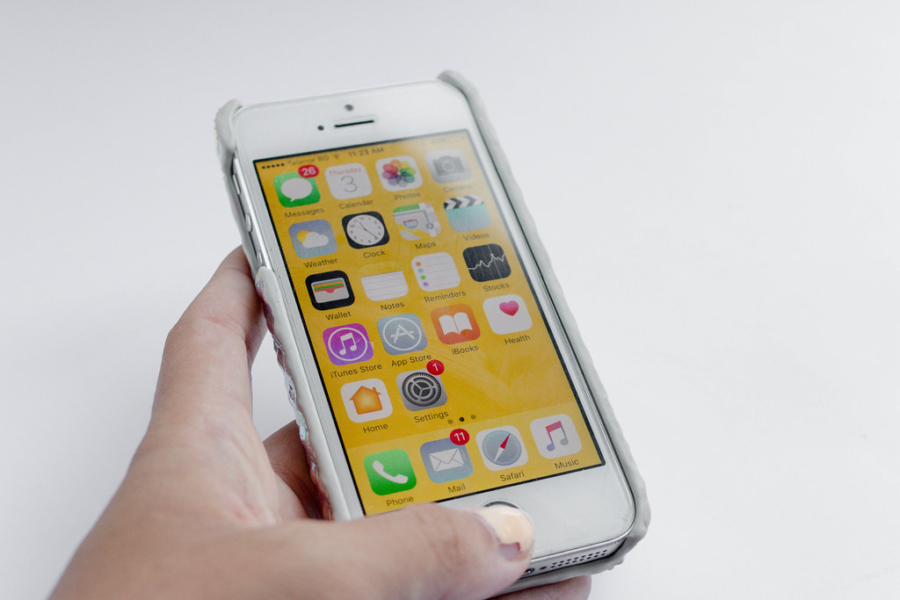Screen Time on Your Mind?
December 5, 2019
You’re at home, feeling stressed, doing your homework. Your phone vibrates. Feeling a ridiculous urge you check the fresh notification. The screen reflects a message from social media which puts you at ease. Just checking your phone brings you happiness?
Huh?
Lately, the discussion has swarmed up about phone usage and whether or not it truly is affecting the teenage brain. Leading to the common questions, are you addicted to your phone?
Jada Biggs (‘20) admits to being addicted to her phone. She knows how much being on it affects one’s well being.
“Yes. Being on your phone makes you glued to things and it’s not good for your mental health,” Biggs said.
As many already know there is a feature in most Apple products that measures screen time. This feature can look at your time on each app individually and share your daily and weekly screen time.
Brendan Messier (‘20) and Kaylee Green (‘20) agreed to share their daily screen time.
“About 4 hours and 40 minutes,” Green said.
“3 hours and 44 minutes,” Messier said.
Keeping in mind that the screen times were taken on a weekday, this shows that the amount of time spent on an average kid’s phone is nearly the same as a small road trip.
In an article written by Zahid Naeem by the name of Health Risks Associated with Mobile Phones he talks about the toll phones have on the human body.
“Scientists have reported adverse health effects of using mobile phones including changes in brain activity, reaction times, and sleep patterns, ” Naeem said.
This is not a great outlook on the usage of cellphones, which is why rules such as no cell phone use in schools are so easily created.
Many are already aware of the side effects of phone usage on the body, but continue to use their devices. Could this perhaps be an addiction?
In Jillian D’Onfro’s article she goes into depth about the amount of mental health that gets flushed away due to excessive cell phone usage.
“Most people check their phones every 15 minutes or less, even if they have no alerts or notifications,” Larry Rosen, psychology professor and author of The Distracted Mind, tells CNBC.
The fear of missing out is strong.
“We’ve built up this layer of anxiety surrounding our use of technology, that if we don’t check in as often as we think we should, we’re missing out,” D’Onfro said.
The constant checking of phones even when there seems to be no notification at all shows the dependency we have on our phones.
Due to the negative reports on phone usage it’s all up to you if you want to prevent health issues, and better yourself. Even practicing limiting screen time is a great start.
A very helpful article 11 Easy Ways to Reduce Your Screen Time by Jessica Miley gives some pointers on how to cut back.
“Eat your meals without a screen, limit your non-work screen time, don’t watch movies or TV in bed, cut down on computer socializing, set a timer, ban phone charging from the bedroom, take up another hobby for boredom, schedule a meeting phone call instead of using chat,” Miley said.
A screen time app also can set up a timer for your iPhone that limits your screen time.
Just think. Next time you are doing your homework and hear your phone go off, think.
Is it really that important?


Flavie Lamat • Nov 13, 2020 at 2:20 pm
Article which allows a reminder of what we already know but try to ignore every day. It’s good not to forget and to realize this. This is good that you explain that solutions exist, for example, the screen time app for phones.